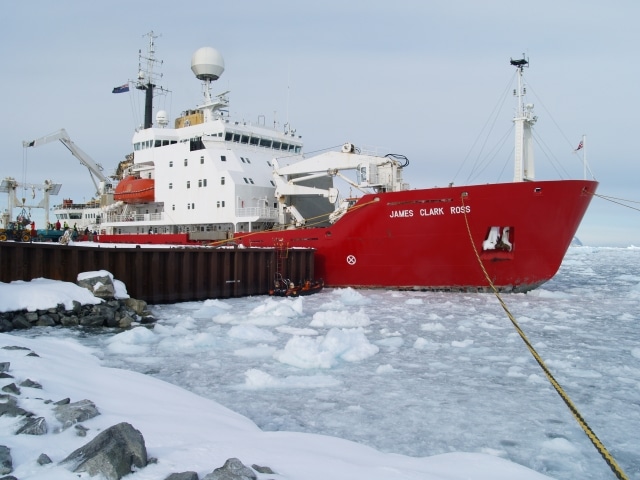Scientists hope to refine ocean and climate models using new data collected by underwater robots deployed under Antarctic ice caps by the University of East Anglia (UEA) and the California Institute of Technology.
Researchers travelled to the Southern Ocean off Antarctica – one of the most remote and inaccessible oceans in the world – to investigate how warm water is making its way to the ice sheets, causing them to melt.
According to the findings, published today in Nature Geoscience, swirling water storms, or eddies, caused by the ocean currents are transporting layers of warm, salty water towards the coast of Antarctica.
Normally, the warmer water is found hundreds of metres below the Antarctic continental shelf throughout the Southern Ocean. How this warm water reaches the shallow water around the Antarctic coast had yet to be observed until now.
Using three robotic gliders remotely controlled from Norwich, more than 10,000 miles away, data on water salinity, temperature and oxygen levels was sent back via satellite mobile phone technology over the course of two months.
This data can now be used to refine ocean and climate models, allowing scientists to more accurately predict the rate at which ice sheets will retreat and how quickly global sea level will rise as a result.
“Our robots help us to build up a picture of underwater conditions,” described Professor Karen Heywood from UEA’s centre for ocean and atmospheric sciences. “The results have identified ocean features that could not feasibly have been studied by any other means.”
“It is important because the rapidly melting ice sheets on the coast of West Antarctica are a potential major contributor to rising ocean levels worldwide,” Heywood added.
Sea Ice
However, it is not the sea ice that the team was interested in examining. In fact, recent studies show that Antarctic sea ice has been expanding over the last few winters.
“What we’re more interested in is the ice that is currently on the land of Antarctica. That’s because when ice that is now on land melts, it increases sea level around the world,” explained Heywood.
As Antarctic land ice melts, it reduces the salinity of the surrounding water. “This puts a fresh layer on top of the ocean, like a layer of cream in your coffee,” said Heywood.
This layer of fresh water then helps to increase the extent of sea ice, “so it may well be that the increased melting of the ice on the land and the expanding of the sea ice are part of the same climate change signal,” she said.
“Physical processes in this area of the Antarctic are important for global climate and chemical cycles,” she continued. “But steep terrain and complex interactions between the atmosphere, sea ice, and water combine to make this particularly challenging for climate models, as well as for making observations.”
Based on the report’s findings, the team hopes not only to enhance the scientific understanding of polar processes but to also help predict future rates of retreat for Antarctic ice shelves.
Subscribe to our newsletter
Stay up to date with DeSmog news and alerts







